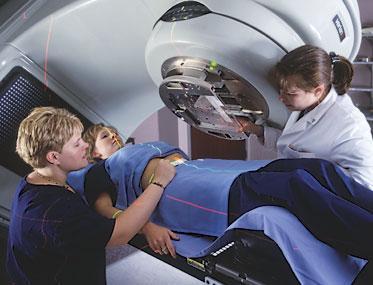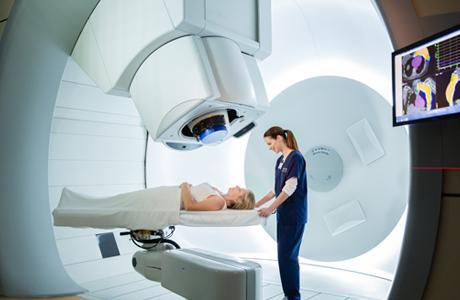Radiation therapy offers clear benefits to patients. It allows organ preservation, preserves quality of life, reduces pain and improves survival.

Radiation Therapy
Radiation therapy, or radiotherapy, is the use of various forms of radiation to securely and effectively treat cancer and other diseases. Radiation therapy might be more helpful in some cases compared to others. It is a well established treatment. Radiation therapy offers clear benefits to patients. It enables organ preservation, preserves quality of life, reduces pain and improves survival.
Radiation therapy is created specifically for maximizing tumor effect, while minimizing impact on the normal tissues. That is why radiation therapy is supplied like several series of small doses, instead of a few of large doses.
What Is Radiation Therapy?
Radiation therapy uses X-rays to eliminate or injure cancer cells so that they cannot multiply. Radiation therapy can be used to treat the primary cancer or advanced cancer.
It might be the only treatment used, or used in combination with surgery and/or chemotherapy. It is also used to reduce the size of the cancer and relieve pain, discomfort or other symptoms.
What Are The Different Kinds Of Radiation?
The aim of radiation therapy is to get enough radiation into the body to get rid of the cancer cells while preventing damage to healthy tissue. There are many ways to do this. Depending on the location, type and size of cancer, you may receive one or perhaps a combination of techniques. Your treatment team will help you to decide which remedies are best for you.
Radiation therapy can be delivered in two ways, externally and internally. During external beam radiation therapy, the radiation oncology team utilizes a machine to direct high-energy X-rays in the cancer. Internal radiation therapy, called brachytherapy, involves placing radioactive sources (for instance, radioactive seeds) inside your body.
What Are The Risks Of Radiation?
Side effects of radiation therapy depend on which part of your body has been exposed to radiation and how much radiation is used. You might experience no side effects, or you can experience several. Most side effects are temporary, can be controlled and usually disappear over time once treatment has ended.
What Are The Benefits Of Radiation?
Get some of the main benefits of radiation therapy here below.
Pain Free
Radiation therapy provides the benefit of being painless. Furthermore, it does not cause any harm to the adjacent health organs as well as other tissues. This results in better results in the therapy since the dose of radiation is normally delivered having a great level of accuracy. Patients undergoing radiation therapy therefore don’t feel pain during or after the procedure.
Cancer Treatment
Radiation therapy is used for treatment of a variety of cancer. This kind of treatment utilizes X-rays of a high energy to kill cancer cells. Radiation therapy may be used solely on its own or when used together with other kinds of treatment like surgery as well as chemotherapy to cure and control cancer.
Convenience
This kind of tumor treatment offers convenience as it can be finished in a few minutes. Actually, radiation therapy is quickly administered in one session. This is not only convenient for that patients, but it is also more comfortable. As a result, patients can rapidly resume their everyday activity as soon as they finish radiation treatment.

Overview Of The Radiation Therapy
Limited Side Effects
There are fewer adverse effects associated with using radiation therapy as compared to other cancer treatment options like chemotherapy. The high accuracy of delivering radiation doses helps to ensure that only targeted cancer cells is going to be affected. In contrast, chemotherapy does not this type of high accuracy as the treatment is administered in to the blood.
Side-effects vary and will depend on which area of your body has been treated. Possible side-effects include
- Fatigue (tiredness)
- Nausea (feeling sick)
- Dry, red or itchy skin
- Loss of appetite
- Swelling
- Cough or shortness of breath.
- Digestive problemsdry or sore throat or mouth
Most side-effects can be managed and can gradually disappear once your treatment has finished.
